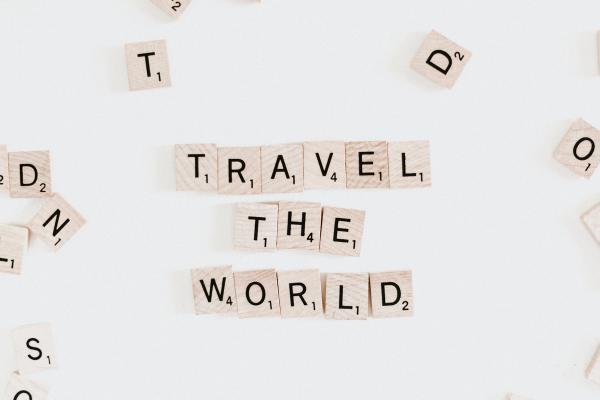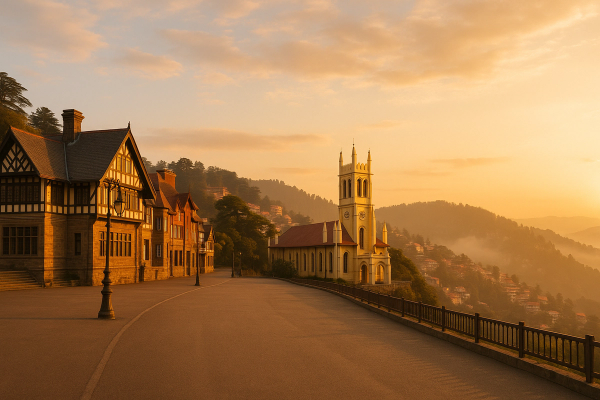
Ready to Take the Leap? Why Europe is Perfect for Your First Solo Adventure#
The thought of traveling solo for the first time can be a thrilling mix of excitement and nerves. Images of stunning landscapes, bustling city squares, and newfound freedom flash through your mind, quickly followed by questions: 'Will I be safe?', 'Will I get lonely?', 'Can I actually do this?'. Let me tell you – yes, you absolutely can! And there's arguably no better place to dip your toes into the empowering world of solo travel than Europe.¶
Europe offers an incredible blend of diverse cultures, fascinating history, delicious food, and relatively easy travel between countries. Its well-trodden tourist paths, extensive transport networks, and vibrant hostel culture make it particularly welcoming for beginners venturing out alone. Choosing the right starting point is key, which is why we've compiled this guide to the best European cities for first-time solo travelers – places where you can feel secure, navigate with ease, and find connection, all while having the adventure of a lifetime.¶
Choosing Your Perfect Launchpad: What Makes a City Great for First-Time Solo Travelers?#
Not all cities are created equal when it comes to solo travel, especially for your first time. While almost anywhere can be visited solo, some destinations just make it easier and more enjoyable for beginners. We've focused on three core criteria:¶
Safety First: Feeling Secure on Your Own#
This is often the biggest concern for new solo travelers (and their families!). Feeling safe allows you to relax and truly soak in the experience. We've prioritized cities with low crime rates, reliable public transport (especially at night), well-lit central areas, and a general atmosphere where solo exploration feels comfortable. This doesn't mean abandoning common sense – vigilance is always key – but these cities offer a reassuring environment.¶
Easy Peasy Navigation: Getting Around Without Stress#
Feeling lost and overwhelmed can quickly dampen spirits. Cities that are easy to navigate, whether through walkability, excellent public transport systems with clear signage, or widespread English proficiency, significantly reduce the stress factor. Being able to confidently find your way from your hostel to that must-see museum or hidden gem café is a huge confidence booster for beginner solo travel.¶
Finding Your Tribe: Opportunities to Connect (If You Want To!)#
Solo travel doesn't have to mean lonely travel. One of the joys is meeting people from all walks of life. Cities with a thriving hostel scene, plenty of free walking tours, group activities, sociable cafes and bars, and a generally friendly local culture provide ample opportunities to connect with fellow travelers and locals. Of course, the beauty of solo travel is also cherishing your own company when you choose!¶
Top Picks: The Best European Cities for First-Time Solo Travelers#
Based on these criteria, here are some fantastic European cities that consistently rank high for first-time solo adventurers. They offer that perfect blend of safety, ease, social opportunities, and unforgettable experiences.¶
| City | Vibe | Avg. Daily Budget (Mid-Range, Excl. Flights) | Best For | Key Solo Highlight |
|---|---|---|---|---|
| Lisbon, Portugal | Charming, Sunny, Affordable, Soulful | €50-€80 | Budget travelers, Foodies, Culture Vultures | Getting lost in Alfama & social hostels |
| Dublin, Ireland | Friendly, Lively, Historic, Pub Culture | €70-€100 | Easy communication (English), Music lovers, History buffs | Effortless chats in traditional pubs |
| Prague, Czech Republic | Fairytale, Budget-Friendly, Vibrant, Historic | €40-€70 | Budget travelers, Architecture lovers, Nightlife seekers | Stunning views & bustling backpacker scene |
| Amsterdam, Netherlands | Picturesque, Liberal, Artsy, International | €80-€120 | Museum lovers, Relaxed explorers, Cyclists | Canal cruising & world-class museums |
| Edinburgh, Scotland | Historic, Dramatic, Cozy, Festival Hub | €70-€110 | History buffs, Hikers (Arthur's Seat!), Festival-goers (Aug) | Atmospheric Old Town & friendly locals |
Lisbon, Portugal: Sunshine, Soul, and Solo-Friendly Vibes#
Lisbon consistently tops lists for solo travelers, and for good reason. This sun-drenched capital oozes charm with its tiled facades, melancholic Fado music drifting from taverns, and breathtaking viewpoints (miradouros). It's relatively affordable compared to other Western European capitals, incredibly scenic, and has a welcoming, laid-back atmosphere that instantly puts you at ease.¶
Safety: Lisbon is generally considered a very safe city for solo travelers. The main concern is pickpocketing, particularly on crowded trams (like the famous #28) and in tourist hotspots like Baixa and Belém. Keep your valuables secure and be aware of your surroundings, but violent crime is low, and walking around feels comfortable.¶
Getting Around: Lisbon is a city of hills, so pack comfy shoes! The core is walkable, but the metro system is efficient, clean, and easy to navigate. Trams and buses cover the rest of the city. Ride-sharing services like Uber are also readily available and affordable. The Viva Viagem card is a rechargeable card usable on all public transport – super convenient.¶
Accommodation: Lisbon boasts some of Europe's best and most sociable hostels. Places like Yes! Lisbon Hostel or Goodmorning Solo Traveller Hostel are legendary for their communal dinners, organised tours, and friendly atmosphere, making it incredibly easy to meet people. You'll also find plenty of stylish guesthouses and Airbnbs.¶
Solo-Friendly Activities: Wander aimlessly through the narrow, winding streets of the Alfama district. Visit the historic Belém Tower and Jerónimos Monastery. Indulge your sweet tooth with Pastéis de Nata (custard tarts) in Belém. Take a free walking tour to get oriented and meet others. Catch a soulful Fado performance. Explore the trendy LX Factory. Enjoy sunset views from a miradouro. A day trip to the fairytale castles of Sintra is also a must.¶
Social Scene: Exceptionally easy. The hostel scene is fantastic. The Time Out Market offers communal tables perfect for striking up conversations over diverse food choices. Locals are generally friendly and approachable, especially in smaller cafes and bars outside the main tourist crush.¶
Food: Beyond Pastéis de Nata, try fresh grilled sardines (in season), Bifana (pork sandwich), Bacalhau (codfish, cooked hundreds of ways). Food is delicious and very reasonably priced.¶
Best Time: Spring (April-June) and Autumn (September-October) offer ideal weather – warm, sunny days without the intense heat and peak crowds of summer (July-August).¶
My top tip for Lisbon? Embrace getting lost in the Alfama district. Every corner reveals something new, from colourful tiles to stunning viewpoints, and it’s where I had some of my best solo chats with locals and fellow travelers sharing a tiny Ginjinha (cherry liqueur).
Dublin, Ireland: Craic, Culture, and a Welcoming Spirit#
If you're looking for effortless conversation and a guaranteed good time, Dublin is calling. The Irish capital is famed for its legendary friendliness (the 'craic'), cozy pubs brimming with live music, rich literary history, and a compact, walkable city center. The fact that English is the main language removes a potential barrier for many first-time solo travelers from the USA, UK, India and beyond.¶
Safety: Dublin is generally a very safe city, particularly in the central tourist areas. Like any capital, exercise standard precautions – be aware of your surroundings, especially late at night or in crowded areas like Temple Bar (which can get rowdy). But overall, solo explorers, including women, report feeling very comfortable here.¶
Getting Around: Dublin's city center is incredibly walkable. Most major sights are within easy reach on foot. For longer distances, Dublin Bus has an extensive network (get a Leap Card for easy tap-on/tap-off payment). The Luas tram system serves other parts of the city.¶
Accommodation: Dublin offers a fantastic array of hostels known for their social vibes and central locations – think Jacobs Inn or Generator Dublin. Plenty of traditional hotels and charming B&Bs are also available, though prices can be higher than in Lisbon or Prague.¶
Solo-Friendly Activities: Immerse yourself in the process (and tasting!) at the Guinness Storehouse. Wander the historic grounds of Trinity College and marvel at the Book of Kells. Take a sobering tour of Kilmainham Gaol (book well in advance!). Explore the Temple Bar district (pop in for a photo and maybe one drink, then find a more authentic pub nearby!). Visit the excellent free National Museums. Catch live traditional music sessions in pubs like The Cobblestone.¶
Social Scene: This is where Dublin truly shines for solo travelers. Pub culture is inherently social. It's perfectly normal to strike up a conversation with the bartender or the person next to you. Hostels often organize pub crawls and events. Free walking tours are abundant and great for meeting travel buddies.¶
Food: Hearty and comforting is the name of the game. Try a traditional Irish stew, fish and chips (beside the sea if possible!), soda bread with creamy Irish butter, and definitely indulge in a full Irish breakfast to fuel your explorations.¶
Best Time: Late Spring (May-June) and early Autumn (September) usually offer the mildest weather and fewer crowds than the peak summer months (July-August). March brings St. Patrick's Day festivities – incredibly fun but extremely crowded and expensive.¶
Don't be shy in Dublin pubs! Striking up a conversation is easier than you think, especially if there's live music. Ask for a song recommendation or just comment on the music – the Irish are famously chatty and welcoming.
Prague, Czech Republic: Fairytale Charm on a Budget#
Stepping into Prague feels like entering a fairytale. With its stunning Gothic architecture, the majestic Charles Bridge spanning the Vltava River, and the sprawling Prague Castle complex overlooking the city, it's visually breathtaking. Add to that its incredible affordability (especially for beer!), lively atmosphere, and established backpacker infrastructure, and you have one of the best European cities for first-time solo travelers on a budget.¶
Safety: Prague is generally very safe, particularly within the main tourist zones (Old Town, Malá Strana, Castle District). The primary concern is petty theft – pickpockets operate frequently on Charles Bridge, in Old Town Square (especially during the Astronomical Clock show), and on crowded public transport. Be vigilant with your belongings. Also, be wary of currency exchange kiosks offering poor rates; use ATMs or reputable banks instead.¶
Getting Around: Prague boasts an excellent, efficient, and incredibly cheap public transport system comprising the metro, trams, and buses. A single ticket covers all modes. Much of the historic center is wonderfully walkable, though be prepared for the uphill climb to Prague Castle!¶
Accommodation: Prague is a haven for budget travelers, with a huge density of hostels. Many are renowned for their social atmosphere and organized activities – The MadHouse Prague and Hostel One branches are popular choices for those looking to mingle. Affordable hotels and apartments are readily available, especially slightly outside the absolute center.¶
Solo-Friendly Activities: Walk across the Charles Bridge at sunrise (seriously, do it!). Explore the vast Prague Castle complex (allow several hours). Watch the Astronomical Clock show in the Old Town Square (manage expectations, it's brief!). Wander through the historic Jewish Quarter. Visit the colourful Lennon Wall. Take a relaxing Vltava river cruise. Explore the charming streets of Malá Strana. Enjoy cheap, excellent Czech beer in a traditional pub or a summer beer garden.¶
Social Scene: As a major hub on the Central European backpacker trail, Prague is incredibly social. Hostels are buzzing with activity. Free walking tours are a staple and a great way to meet people and get oriented. Numerous themed tours (castle tours, beer tours, ghost tours) offer more structured social interaction. The nightlife is varied and lively.¶
Food: Czech cuisine is hearty and meat-heavy. Try Goulash (often served with bread dumplings), Svíčková (marinated sirloin in cream sauce), and various roast meats. While touristy, grabbing a Trdelník (cinnamon sugar pastry) is almost a rite of passage. And of course, the beer (Pivo) is famously excellent and cheaper than water in many places!¶
Best Time: Shoulder seasons – Spring (May-June) and early Autumn (September) – offer pleasant weather for exploring and slightly thinner crowds than peak summer. Winter (December) is magical with its famous Christmas markets, but be prepared for cold weather.¶
Prague's beauty can be overwhelming! My advice? Wake up super early one morning to walk across Charles Bridge as the sun rises. It's pure magic, almost entirely crowd-free, and perfect for solo reflection before the city fully wakes up.
Amsterdam, Netherlands: Canals, Culture, and Open-Mindedness#
Amsterdam's iconic canals, charming gabled houses, world-class museums, and famously liberal and open-minded atmosphere make it a captivating destination. It's incredibly international, easy to navigate (especially by bike!), and offers a huge range of activities to suit any interest. While slightly pricier than Lisbon or Prague, its unique charm and welcoming vibe make it a great Europe travel starting point for solo adventurers.¶
Safety: Amsterdam is generally a very safe city. The main concerns are pickpocketing (especially in crowded areas and on trams) and bike theft. Be aware of your surroundings, particularly at night around Centraal Station and the Red Light District (while generally safe to walk through, exercise caution and respect). Stick to well-lit streets.¶
Getting Around: Amsterdam is extremely walkable and famously bike-friendly. Renting a bike is almost a prerequisite for feeling like a local (just watch out for experienced local cyclists!). The tram and bus network is also excellent and efficient for reaching further-flung areas.¶
Accommodation: Amsterdam offers a wide spectrum of accommodation, from lively party hostels (Flying Pig Downtown) to more relaxed, eco-conscious options (Ecomama), boutique hotels, and unique houseboat stays. Accommodation can be expensive, especially during peak season, so booking in advance is highly recommended.¶
Solo-Friendly Activities: Book tickets months in advance for the poignant Anne Frank House. Immerse yourself in art at the Rijksmuseum (home to Rembrandt's 'The Night Watch') and the Van Gogh Museum. Take a relaxing canal cruise for a different perspective of the city. Get lost wandering the charming streets and canals of the Jordaan district. Relax or cycle in Vondelpark. Browse the floating Bloemenmarkt (flower market). Grab diverse bites at Foodhallen, a trendy indoor food market great for solo dining.¶
Social Scene: Amsterdam is very international, making it easy to connect with fellow travelers, especially in hostels and during tours. The Dutch are generally reserved but polite and speak excellent English. The cafe culture ('gezellig' cozy cafes) provides relaxed settings for people-watching or striking up conversations. Free walking tours are popular.¶
Food: Sample Dutch classics like Stroopwafels (thin waffle cookies with caramel syrup), various cheeses (visit a cheese shop for tastings!), raw Herring (Haring) from a street stand if you're brave, Bitterballen (fried meat snacks, great with beer), and explore the legacy of Dutch colonial history with an Indonesian 'Rijsttafel' (rice table with many small dishes).¶
Best Time: Spring (April-May) is magical for tulip season (consider a day trip to Keukenhof Gardens) and the vibrant King's Day celebrations (April 27th). Summer (June-August) offers lovely weather but peak crowds. Autumn (September-October) sees fewer tourists and beautiful fall colors.¶
Edinburgh, Scotland: History, Hills, and Highland Hospitality#
With its dramatic castle perched atop an extinct volcano, winding medieval streets in the Old Town, elegant Georgian architecture in the New Town, and the backdrop of Arthur's Seat, Edinburgh is undeniably atmospheric. It's compact, walkable (though hilly!), steeped in history, and known for the warmth of its people, making it a fantastic choice for a first-time solo traveler.¶
Safety: Edinburgh is widely regarded as a very safe city. Standard urban precautions apply, like being aware of your surroundings, especially when walking alone late at night in quieter areas. The main physical challenge might be navigating the steep, sometimes slippery (when wet) cobbled streets and hills!¶
Getting Around: The heart of Edinburgh (Old Town and New Town) is best explored on foot. Be prepared for hills! Lothian Buses offer an excellent and comprehensive network covering the rest of the city and surrounding areas. There's also a tram line connecting the airport to the city center.¶
Accommodation: You'll find a good range of well-regarded hostels, many with heaps of character (Castle Rock Hostel, High Street Hostel). Traditional Scottish B&Bs (guesthouses) offer a cozier experience. Hotels cater to all budgets. Note that accommodation prices skyrocket during the August festival season – book months in advance if visiting then.¶
Solo-Friendly Activities: Explore the iconic Edinburgh Castle. Hike up Arthur's Seat (an ancient volcano in the city!) for breathtaking panoramic views. Walk the historic Royal Mile, connecting the Castle to the Palace of Holyroodhouse. Visit the excellent (and free!) National Museum of Scotland. Discover the picturesque Dean Village. Take an atmospheric ghost tour in the evening. Consider a day trip to the nearby Highlands or Loch Ness.¶
Social Scene: Scots are generally known for their friendliness and dry wit. Pubs are central to social life, often featuring live folk music sessions where it's easy to feel part of the atmosphere. Hostels are social hubs. Edinburgh is a university city, adding to its youthful energy. August brings the world-famous Edinburgh Fringe and International Festivals, making the city incredibly vibrant and social, albeit chaotic and expensive.¶
Food: Embrace Scottish staples! Try Haggis (minced sheep's pluck with oats and spices – be brave, it's tasty!), Neeps and Tatties (turnips and potatoes, traditionally served with haggis), Cullen Skink (creamy smoked haddock soup). Indulge in a proper afternoon tea or some crumbly shortbread. And of course, a wee dram of Scotch Whisky at a tasting or cozy pub is essential.¶
Best Time: Late Spring (May-June) and early Autumn (September) often provide the best balance of decent weather (though Scottish weather is famously changeable!) and manageable crowds. August is festival month – incredible energy but packed and pricey. Winter is atmospheric, especially around Christmas, but expect cold, damp, and short daylight hours.¶
Essential Tips for Your First Solo Trip to Europe#
Feeling inspired? Amazing! Beyond choosing your city, here are some practical tips to ensure your first solo travel Europe experience is smooth, safe, and sensational:¶
Packing Smart for Europe#
- Pack Light, Seriously: You'll likely be navigating train stations, hostel stairs, and cobblestone streets. A manageable backpack or carry-on sized suitcase is your best friend. You can always buy things if needed.
- Layers are Key: European weather can be unpredictable. Pack versatile clothing items you can layer up or down.
- Comfortable Walking Shoes: Non-negotiable. You'll be doing a lot of walking. Break them in before you leave.
- Essentials: Universal travel adapter, portable power bank (lifesaver!), reusable water bottle (stay hydrated and save money/plastic), basic first-aid kit (plasters, pain relief), padlock for hostel lockers.
- Documents: Passport, visas (check requirements well in advance!), travel insurance details, copies of important documents (digital and physical).
Budgeting Your Adventure#
Europe's costs vary wildly. London and Zurich are worlds apart from Lisbon or Budapest. Research the specific cost of living in your chosen cities.¶
- Estimate Daily Costs: Factor in accommodation (hostels are cheapest), food (mix restaurants, markets, and cooking in hostel kitchens), local transport, activities/sightseeing, and a buffer for souvenirs or unexpected treats.
- Money-Saving Tricks: Take advantage of free walking tours (tip generously!), check for city passes or museum discount days, utilize hostel kitchens, enjoy picnics in parks, look for free events.
- Smart Banking: Use cards like Wise or Revolut for better exchange rates and lower fees than traditional banks. Inform your bank about your travel dates to avoid blocked cards.
Staying Safe and Savvy#
- Situational Awareness: Be mindful of your surroundings, especially in crowded tourist areas, train stations, and at night. Keep valuables secure and out of sight.
- Share Your Plans: Leave a copy of your itinerary with someone back home and check in regularly. Consider sharing your location via apps if it makes you feel more comfortable.
- Travel Insurance: Absolutely essential. Ensure it covers medical emergencies, theft, and cancellations.
- Emergency Info: Know the local emergency number (it's 112 in most of Europe). Learn a few basic phrases like "Hello," "Thank you," and "Help."
- Trust Your Gut: If a situation or person feels off, remove yourself. It's always better to be safe than sorry. Don't feel obligated to be polite if you feel uncomfortable.
- Alcohol: Enjoy yourself, but be mindful of your limits, especially when alone. Keep an eye on your drinks.
Connecting with Others (or Enjoying Your Own Company)#
- Hostels are Hubs: If meeting people is a priority, stay in social hostels. Hang out in common areas, join organised events (dinners, pub crawls, tours).
- Join Tours & Classes: Free walking tours, day trips, cooking classes, language exchanges – great ways to meet like-minded people.
- Use Technology: Apps like Meetup show local events. Hostelworld lets you see who else is checking in. Bumble BFF can connect you with potential friends.
- Be Open: Smile, make eye contact, be approachable. Ask for directions or recommendations – it’s an easy conversation starter.
- Embrace Alone Time: Don't feel pressured to be social 24/7. Part of solo travel is enjoying your own pace and company. Sit in a cafe, read a book, people-watch.
- Dining Solo: Eating alone can feel daunting initially, but it's common! Eat at the bar, bring a book, or choose places with communal tables.
Getting Connected: SIM Cards and Wi-Fi#
Staying connected can be important for navigation, booking things, and keeping in touch.¶
- Check Home Plan: See if your provider offers affordable international roaming packages.
- Local/EU SIM: Often the cheapest option. Buy a prepaid SIM card upon arrival at the airport or in town (requires an unlocked phone). Within the EU, a SIM bought in one member country often works in others with no extra roaming charges (check specific plan details).
- eSIM: If your phone supports it, an eSIM can be convenient to set up before you even leave home.
- Wi-Fi Reliance: Wi-Fi is widely available in hostels, cafes, restaurants, and public spaces. Download offline maps (Google Maps, Maps.me) so you can navigate without data.
Traveling Responsibly on Your Solo European Journey#
As travelers, we have a responsibility to tread lightly and respectfully. Even on a solo trip, your choices matter.¶
- Respect Local Culture: Be aware of local customs, traditions, and etiquette. Dress modestly when visiting religious sites.
- Learn Basic Phrases: Effort goes a long way. Knowing "Hello," "Thank you," "Please," and "Excuse me" in the local language is appreciated.
- Support Local: Choose local restaurants, cafes, shops, and tour operators where possible. Your money directly benefits the community.
- Minimize Environmental Impact: Carry a reusable water bottle and coffee cup. Refuse unnecessary plastic bags. Use public transport or walk/cycle.
- Be Mindful: Keep noise levels down, especially in residential areas and accommodations. Be patient and understanding.
Your European Solo Adventure Awaits!#
Taking that first solo trip is a significant step, one that promises immense personal growth, incredible memories, and a newfound sense of capability. Europe, with its blend of accessibility, diversity, and solo-friendly cities like Lisbon, Dublin, Prague, Amsterdam, and Edinburgh, provides the perfect stage for this adventure.¶
Yes, there might be moments of uncertainty, maybe a missed train or a language barrier hiccup. But these are far outweighed by the moments of pure joy – watching a sunset over a new city, mastering the local transport system, connecting with someone from the other side of the world, or simply relishing the freedom of your own schedule. These cities are tried and tested launchpads for countless happy solo travelers before you.¶
So, take a deep breath, choose your city, book that ticket, and prepare to discover not just Europe, but a whole new side of yourself. The adventure is waiting.¶
Which of these best European cities for first-time solo travelers are you dreaming of? Have you taken a solo trip to Europe before? Share your thoughts, tips, or questions in the comments below! Ready to start planning? You can find more travel inspiration and practical guides right here: (https://allblogs.in)¶














